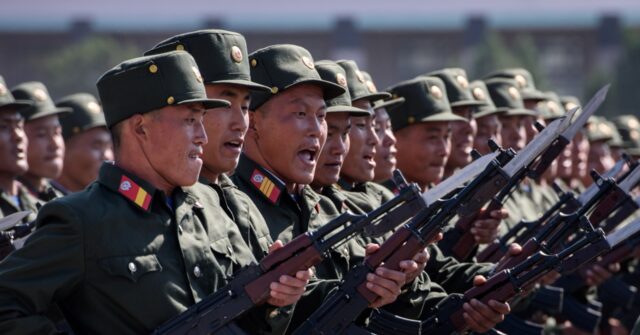In recent developments concerning the geopolitical tensions surrounding the Ukraine conflict, South Korean National Intelligence Service (NIS) director Cho Tae-yong revealed to lawmakers that approximately 3,000 North Korean troops are currently stationed in Russia. This information marks the first official confirmation from the U.S. government regarding evidence of North Korean military presence in Russia, as the situation has significant implications for regional stability and international relations. The North Korean forces are reportedly dispersed across several Russian military bases where they are undergoing training, which includes familiarization with Russian drones, a crucial component of modern military operations.
The interactions between North Korean soldiers and Russian military instructors have not come without challenges. Language barriers have become a notable issue, frustrating some of the Russian trainers. To mitigate these difficulties, Russian authorities have responded by recruiting more interpreters to bridge the communication gap. Furthermore, the North Korean troops are being compensated with a monthly salary significantly higher than what is typically available in North Korea, estimated at around $2,000. This financial incentive suggests the regime’s intention to enhance their military capabilities and may reflect broader strategic cooperation between North Korea and Russia in the context of the ongoing war in Ukraine.
Internally, North Korea is reportedly taking measures to control the narrative surrounding the deployment of these soldiers. The government appears to be isolating the families of troops stationed in Russia, presumably to prevent the dissemination of information and rumors associated with the military movements. Despite the growing evidence of North Korean troop presence, both Pyongyang and Moscow have officially denied these claims, indicating a concerted effort to manage public perception and political ramifications. Cho’s estimates suggest that the North Korean troop presence in Russia might further increase, with plans to recruit up to 10,000 soldiers by the end of December, amplifying concerns regarding the potential escalation of the conflict.
In a broader context, the implications of deploying North Korean troops have garnered significant attention within military and intelligence circles, particularly regarding Ukraine. Kyrylo Budanov, the head of Ukraine’s Military Intelligence Directorate, indicated that these North Korean forces may be utilized by Russia to reclaim territories lost during the ongoing fighting, specifically targeting the Kursk region, which has been occupied by Ukrainian forces since August. The anticipation surrounding the imminent arrival of North Korean troops highlights the intersection of regional conflicts and the potential for further international military engagement.
The situation has also drawn the attention of high-level U.S. officials, including Secretary of Defense Lloyd Austin, who publicly acknowledged the South Korean intelligence findings. Austin characterized the presence of North Korean troops in Russia as a critical issue that warrants close scrutiny, emphasizing the seriousness of their potential involvement in the conflict against Ukraine. The inextricable links between North Korean military actions and Russian operations against Ukraine signal a potential shift in the dynamics of the ongoing war, raising alarms regarding the introduction of foreign combatants into the theater of conflict.
In conclusion, the reported deployment of North Korean troops in Russia raises critical questions about the evolving nature of warfare in the context of global alliances and regional power struggles. The implications of this cooperation between North Korea and Russia extend beyond immediate military considerations, influencing geopolitical stability in the region. The intelligence reports and anticipated troop movements underscore the complexity of the conflict in Ukraine, and South Korea’s warning of potential arms support to Ukraine in retaliation for North Korean troop involvement illustrates the delicate balance of power. As the situation develops, the international community will need to carefully monitor these dynamics, exploring diplomatic and strategic responses to mitigate the risks associated with increasingly involved foreign military forces.

